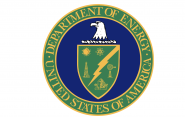Yale Part of DOE's $100 Million Water Treatment Effort

The National Alliance for Water Innovation (NAWI), which includes Yale SEAS professors Menachem Elimelech and Jaehong Kim, was selected today by the U.S. Department of Energy (DOE) to lead the Energy-Water Desalination Hub to address water security issues in the United States.

The five-year, $100-million award is the largest amount that the DOE has ever spent on water efforts. The Energy-Water Desalination Hub will focus on early-stage research and development for energy-efficient and cost-competitive desalination technologies. These technologies will treat non-traditional water sources, such as seawater and wastewater, for multiple applications.
NAWI is a research alliance headquartered at DOE's Lawrence Berkeley National Laboratory in collaboration with the National Energy Technology Laboratory, National Renewable Energy Laboratory, Oak Ridge National Laboratory, 19 founding university partners, and 10 founding industry partners. Yale is the only university with two principal investigators in NAWI.

“Our participation in this center is a testimony that Yale has been playing a leading role in the field of desalination and water treatment. It also presents a tremendous opportunity for Yale to further enhance our reputation,” said Jaehong Kim, the Henry P. Becton Sr. Professor and Chair of Chemical & Environmental Engineering.
Since the Chemical Engineering department was renamed Chemical & Environmental Engineering to include the expanding program in 2010, the Environmental Engineering program has proven to have a large impact on the field. For the last four years, it has been listed in the top 10 of the U.S. News & World Report’s Graduate Engineering Rankings (with six faculty members, it’s the smallest program in the top 10).
Kim said he and Elimelech will spend the next year “roadmapping, shaping the center and figuring out how we’re going to approach all of these challenges.”
Elimelech, the Roberto C. Goizueta Professor of Chemical & Environmental Engineering, said the new center’s efforts will address the changing needs in desalination and difficult-to-treat wastewaters. For instance, wastewater from fracking can have more than five times the salt content as seawater, so new technologies are needed to treat it.
“It’s quite rewarding for Yale to be part of this team,” said Elimelech. “When it comes to desalination, we’ve been one of the leading teams in the world.”
NAWI will develop technologies that treat seawater, brackish water, and produced waters, for use in municipal, industrial, agricultural, utility, oil and gas, and other water supply needs. Projects will be based on a series of research proposal calls, the first of which is anticipated in June of 2020. NAWI's goal is to enable the manufacturing of energy-efficient desalination technologies in the U.S. at a lower cost with the same (or higher) quality and reduced environmental impact for 90% of non-traditional water sources within the next 10 years.
NAWI was formed two years ago to support DOE’s goal of establishing the desalination hub. It consists of two parts: the core research consortium, which includes the three national labs and the founding academic and industry partners, and the larger NAWI Alliance, which as an open membership and includes more than 100 U.S. organizations.
“We are excited to launch a new era in desalination research, not only to lower the cost and energy of seawater desalination, but to enable low-cost desalination and reuse of other water sources that we have previously ignored or discarded because treatment costs were too high,” said Peter Fiske, director of Berkeley Lab’s Water-Energy Resilience Research Institute and executive director of NAWI.
NAWI’s research director, Meagan Mauter, associate professor of civil & environmental engineering at Stanford University, received her Ph.D. through Yale’s Environmental Engineering program. She said the DOE’s effort is an opportunity to address “the critical barriers to energy efficient and cost-effective water desalination.”
The project is the latest of several large-scale collaborations to involve faculty in environmental engineering program. Among the largest of these is the Nanotechnology Enabled Water Treatment Systems center (NEWT), an academia-industry-government collaboration that also includes Elimelech and Kim, funded by the National Science Foundation to provide clean water to millions of people and make U.S. energy production more sustainable and cost-effective.

